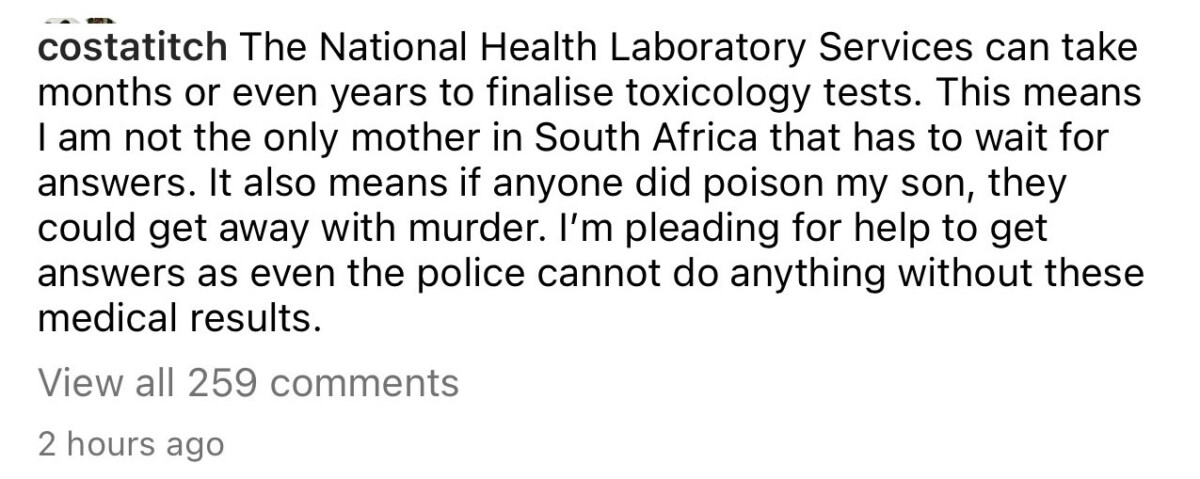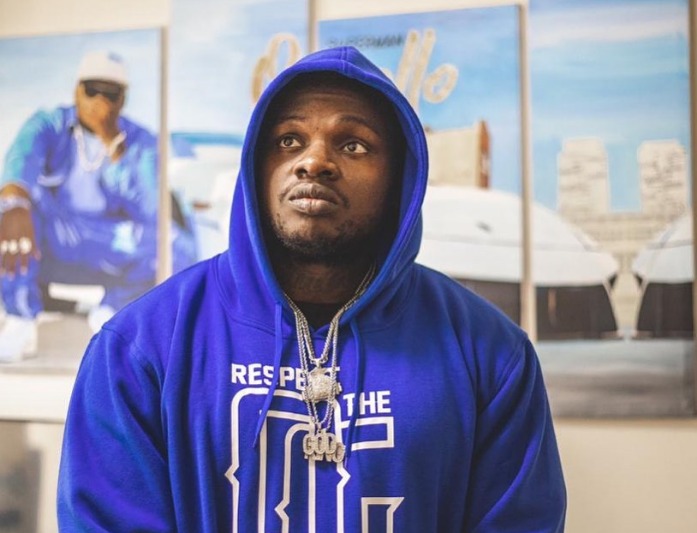In a shocking turn of events, the mother of South African rapper Costa Titch has hinted that her son may have been poisoned, leading her to demand toxicology tests to uncover the truth behind his recent health issues.
The allegations have sent shockwaves through the music industry and raised concerns about the safety and well-being of artistes in the entertainment world.
Costa Titch, known for his energetic performances and unique rap style, has been making waves in the music scene, gaining a significant following both locally and internationally.
However, his promising career took an unexpected turn when he slumped and died while he was performing.
His mother, whose name has not been disclosed, has been actively seeking answers and has publicly voiced her suspicions that her son’s illness was not a result of natural causes. In a recent statement, she expressed her concerns, saying, “The National Health Laboratory Services can take months or even years to finalise toxicology tests. This means I am not the only mother in South Africa that has to wait for answers. It also means if anyone did poison my son, they could get away with murder. I’m pleading for help to get answers as even the police cannot do anything without these medical results”.

She used her son’s official social media accounts to open up to netizens about Costa Titch’s toxicology tests.
While the exact details of Costa Titch’s death remain undisclosed, his mother’s insistence on toxicology tests suggests that she believes foul play may be involved. Poisoning is a serious allegation and raises alarming questions about the potential dangers faced by artists in the industry.
The music industry has long been known for its competitive and often cutthroat nature, with artistes frequently subjected to intense pressures and challenges.
While it is essential to note that no concrete evidence has been presented to support the poisoning claims, the mere suggestion has cast a dark shadow over the industry and its treatment of artistes’ well-being.
The demand for toxicology tests is a crucial step in unraveling the truth behind Costa Titch’s demise.
Such tests would analyze his body for the presence of harmful substances or toxins that could potentially indicate foul play. It is a standard procedure in cases where poisoning is suspected and could provide invaluable insights into the late rapper’s condition.
The music community and fans have rallied behind Costa Titch and his family, expressing their concern and support during this challenging time.
The alleged poisoning has sparked discussions about the need for increased security measures and better protection for artistes, ensuring their safety and well-being both on and offstage.
It is worth noting that artistes, like any other individuals, are susceptible to health issues and can fall ill due to various factors unrelated to foul play.
However, when serious allegations like poisoning arise, it is crucial to address them promptly and thoroughly, safeguarding the integrity of the industry and the trust placed in its key figures.
As the investigation unfolds and toxicology tests are conducted, it is essential to maintain a balanced perspective, allowing the process to reveal the truth.
The well-being of artistes should always be a top priority, and any suspicions of harm or mistreatment must be taken seriously and investigated thoroughly.
Costa Titch’s case serves as a stark reminder of the potential risks artists face in their pursuit of success and the need for a supportive environment that nurtures their talent while ensuring their safety.
The music industry, along with relevant authorities, must work together to address these concerns and provide adequate protection for artists against any form of harm.
The truth behind Costa Titch’s untimely death remains unknown, and until the results of the toxicology tests are revealed, it is essential to respect the privacy of those involved and allow the investigation to run its course.
The outcome of this case will undoubtedly have far-reaching implications for the music industry and the well-being of its artists, emphasizing the need for a safer and more secure environment for everyone involved in the creative process.




